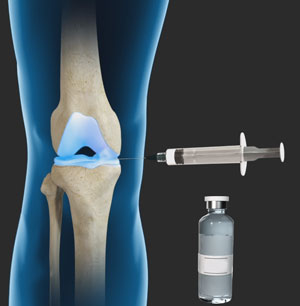

In this case, they help optimize rehabilitation sessions by reducing the pain felt by the patient. Corticosteroid injections may also be proposed to relieve pain caused by tendinitis. Infiltrations involve injecting corticosteroids, powerful cortisone-based anti-inflammatories, to relieve joint pain caused primarily by osteoarthritis. When injected, artificial synovial fluid injections are effective for about six months. Injected directly into the joint affected by osteoarthritis, viscosupplementation improves mobility and reduces pain. With aging the quantity of liquid decreases thus reducing the joint’s shock absorbency. This liquid, of which Hyaluronic acid is a natural constituent, naturally lubricates the joint. The cartilage in healthy joints is covered with a liquid called synovial fluid. It consists in injecting hyaluronic acid to help recover joint flexibility, decrease rubbing and thus reduce pain. What is the difference between an injection and an infiltration ?Īn injection, called viscosupplementation, is a hyaluronic acid injection and is generally used to treat cartilage damage or the onset of osteoarthritis. Clinique Oudinot – Fondation St Jean de Dieu.Functional assessment of the musculoskeletal system.

Assessment of the musculoskeletal system.

Longer-term studies are required to identify whether these changes in SF measures are important for modification of disease progression in knee OA. The bones in the knee joint are lined by a layer of cartilage which cushions the joint and prevents friction. Food and Drug Administration (FDA) -approved indication. Synvisc knee injections are used to help treat arthritis. The majority of studies to date have assessed HA injections for knee osteoarthritis, and this is the U.S. These results suggest that one possible mechanism of action of viscosupplementation is to promote endogenous HA production. restore the viscoelastic properties of the synovial fluid, and improve pain and function. This open-label study showed a statistically significant change from baseline in both SF HA concentration and complex shear modulus at 3 months following IA Hylan GF-20 injection among subjects with mild to moderate knee OA. Sufficient SF was also available from 19 of these subjects at 6 months post-injection when mean HA concentration was 2.24+/-0.62 mg/ml compared to their baseline mean of 2.02+/-0.52 mg/ml, an increase of 10% (p<0.053). The mean HA concentration had increased by 13% (p<0.0008), and the complex shear modulus had increased by 16% (p<0.03). Sequential SF samples were available from 32 of 60 subjects injected at baseline (15 men, 17 women mean age 65 yrs) at 3 months post-injection. SF HA concentration was determined using uronic acid assay, and rheology measured using a micro-Fourier rheometer. Primary endpoints included SF HA concentration, viscosity, and elasticity. Patients with symptomatic knee OA (Osteoarthritis Research Society International grade 1-2) had SF aspirated from the study knee pre- and 3 and 6 months post-Hylan injection. A 2015 study (12) found that the intra-articular PRP injection was more effective than the hyaluronic acid injections in pain relief and function in early knee. Some foods known to help with synovial fluid production are: 1. This helps keep your joints healthy and might help lower your joint pain. We examined the effect of IA Hylan GF-20 injections on synovial fluid (SF) hyaluronan (HA) concentration, viscosity, and elasticity over a 6-month period in patients with mild to moderate OA of the knees. Eating foods that are good for your joints can help your body produce more synovial fluid. Objective: Intraarticular (IA) hylan injections constitute second-line therapy for osteoarthritis (OA) of the knee, but human studies suggesting a possible. Intraarticular (IA) hylan injections constitute second-line therapy for osteoarthritis (OA) of the knee, but human studies suggesting a possible mechanism of action are lacking. More than simply relieving pain, Synvisc temporarily replaces and supplements the deteriorated synovial fluid in your knee joint with a naturally derived. Our specialist orthopaedic surgeons can inject hyaluronic acid into your hip or knee joint, in the part which contains synovial fluid.


 0 kommentar(er)
0 kommentar(er)
